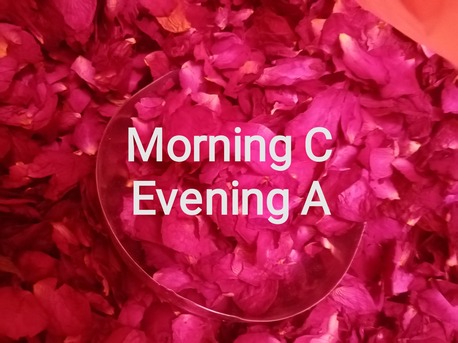
In 2025, following U.S. sanctions on TikTok Global, a surge of American users flocked to Little Red Book (China’s popular lifestyle platform), birthing the viral term “Morning C, Evening A”. The phrase describes how the app’s content shifts between Chinese (Morning “C”) and English (Evening “A”) as users in China and the U.S. log on during their respective active hours, creating a昼夜 content swap across time zones.
Originally rooted in skincare jargon (referring to the routine of using vitamin C in the morning and vitamin A at night), the term was playfully repurposed by netizens to mirror this global social phenomenon. Its dual origins tie back to the Chinese idiom “早出晚归” (zǎo chū wǎn guī), literally meaning “leave early, return late”—a phrase used to describe a busy, all-day lifestyle. In English, it translates naturally to “leave at dawn, return at dusk”, capturing the same essence of daily hustle across cultures.
Internet Meme: “Morning C, Evening A” – An Alternative Take on Cross-Timezone Social Buzz
In 2025, following U.S. sanctions on TikTok Global, a surge of American users flocked to Little Red Book (China’s popular lifestyle platform), birthing the viral term “Morning C, Evening A”. The phrase describes how the app’s content shifts between Chinese (Morning “C”) and English (Evening “A”) as users in China and the U.S. log on during their respective active hours, creating a昼夜 content swap across time zones.
Originally rooted in skincare jargon (referring to the routine of using vitamin C in the morning and vitamin A at night), the term was playfully repurposed by netizens to mirror this global social phenomenon. Its dual origins tie back to the Chinese idiom “早出晚归” (zǎo chū wǎn guī), literally meaning “leave early, return late”—a phrase used to describe a busy, all-day lifestyle. In English, it translates naturally to “leave at dawn, return at dusk”, capturing the same essence of daily hustle across cultures.